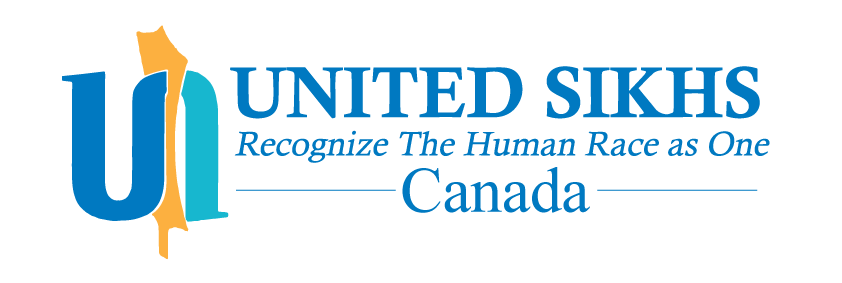UNITED SIKHS is a U.N. affiliated, international, non-profit, non-governmental, humanitarian relief, education, human development and advocacy organization that aims to empower those in need, especially disadvantaged and minority communities around the world. UNITED SIKHS is head-quartered in New York and registered as a non-profit, tax exempt organization, in New York pursuant to Section 501(c)(3) of the U.S. Internal Revenue Code and registered as a charity in the State of New York. It is also registered as a Charity in England and Wales under the Charities Act 1993, Charity Number 111 2055; registered in Australia as a non-profit NGO (ABN 24 317 847 103); a registered NGO in Belgium; is a registered charity organization in Canada with Canada Revenue Agency; registered under the Societies Registration Act 1860 in Punjab, as a tax exempt organization under section 80G of the Income Tax Act 1961; under the French Association Law 1901; under the Societies Registration Act 1860 in Khyber Pakhtoonkhwa, Pakistan; as a registered society under the Registrar of Societies in Malaysia (registered as UNITED SIKHS Malaysia Humanitarian Aid Organisation- Reg. No: PPM-015-14-06042015); and as an NGO pending registration in the Republic of Ireland.
About Us
About Us
Our History
UNITED SIKHS began in 1999 when a group of Sikhs from the New York metropolitan area banded together to assist in the socio- economic development of immigrant communities in Queens, New York. Today, UNITED SIKHS is a grass-roots organisation with chapters in America, Asia and Europe that pursue projects for the spiritual, social and economic empowerment of underprivileged and minority communities. UNITED SIKHS Canada chapter was started in 2006.
Our Mission
To transform, alleviate, educate and protect the lives of underprivileged, individuals and minority communities impacted by disasters, natural or man-made, suffering from hunger, illiteracy, diseases, or from violation of civil and human-rights into informed and vibrant members of society by fostering sustainable programs regardless of color, race, religion, creed, gender, disability and or national origin. UNITED SIKHS believes that the development of enlightened and progressive societies can be made possible by socially conscious groups of people who make a commitment to develop and direct human potential. Our work, efforts and achievements stand as a testament to our faith in this vision. UNITED SIKHS has sought to fulfil its mission not only by informing, educating and uplifting fellow human beings but also by participating in cross-cultural and social dialogues to ensure that the promises and benefits of democracy are realised by all. UNITED SIKHS is also a venue for networking between like-minded organizations to establish and nurture meaningful projects and dialogues – whether social, cultural or spiritual- to promote harmony, understanding and reciprocity in our villages, towns and cities. To achieve its objectives, UNITED SIKHS also participates in coalitions that share a common vision based on the belief that there is no greater endeavour than to serve, empower and uplift fellow human beings. The core of our philosophy is an unwavering commitment to civic service and social progress for the common good.
Our Story
UNITED SIKHS began in 1999 when a group of Sikhs from the New York metropolitan area banded together to assist in the socio-economic development of immigrant communities in Queens, New York. Today, UNITED SIKHS is a grass-roots organization over 1.5 Million followers on Facebook as on March 2024 and over 34,000 on Twitter. It has chapters in North America, Asia, Africa, Australia and Europe that promote volunteerism (seva), provide humanitarian aid and advocacy for the spiritual, social and economic empowerment of underprivileged and minority communities. UNITED SIKHS is a registered as a non-governmental organization (NGO) and charity in the following countries: non-profit tax exempt organization pursuant to Section 501(c)(3) of the Internal Revenue Code in the USA and registered as a New York State charity; registered charity in England and Wales under the Charities Act 1993; registered in Australia as a not for profit charity; registered as a NGO in Belgium; as a registered charity organization in Canada with Canada Revenue Agency; under the Societies Registration Act 1860 and as a tax exempt organisation under section 80G of the Income Tax Act of 1961 in India; under the French Association Law 1901; under the Societies Registration Act 1860 in Khyber Pakhtoonkhwa, Pakistan; as a registered society under the Registrar of Societies in Malaysia; and is a NGO pending registration in the Rep of Ireland.
Equal Opportunities Statement
UNITED SIKHS is committed to the promotion of diversity and equal opportunities amongst its employees, volunteers and project beneficiaries. UNITED SIKHS fervently believes in the promotion of diversity and equality for the benefit of the public by promoting the elimination of discrimination on the grounds of age, colour, race, religion or belief, caste, ethnic or social origin, gender, genetic features, disability, sexual orientation or language, by advancing education in equality and diversity, and by promoting attitudes, customs and practices in favour of equality. Promotion of diversity and equality will occur through the use of publications, the media, and public advocacy and through meeting the charitable needs of those who have suffered discrimination on the aforementioned terms.
